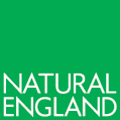London's National Nature Reserves
Updated 12 November 2021
Applies to England
Richmond Park
Richmond Park is London’s largest NNR. It is notable for its rare beetles which feed on dead and decaying wood.
Main habitats: woodland, lowland grassland
Managment: the reserve is owned and managed by The Royal Parks.
Further information about the NNR, its wildlife and how to visit can be found on the Royal Parks’ Richmond Park web page.
Contact
Email: [email protected]
Tel: 0300 061 2200
Ruislip Woods
Ruislip Woods NNR consists of 4 principal areas: Mad Bess Wood, Bayhurst Wood, Park Wood and Copse Wood.
Main habitats: woodland, open water, lowland grassland
Management: the reserve is owned and managed by the London Borough of Hillingdon.
Further information about the NNR, its wildlife and how to visit can be found on the London Borough of Hillingdon’s Ruislip Woods web page.
Contact
Email: [email protected]
Telephone: (01895) 556000
South London Downs
The South London Downs NNR, the newest in London, comprises the most extensive area chalk downland habitat in Greater London.
Main habitats: chalk grassland, neutral grassland, ancient woodland
Area: 431.50 hectares
Features of interest
The site supports a range of habitats including:
- calcareous grassland
- scrub mosaic
- broadleaved woodland
- mixed woodland
- yew woodland
- neutral grassland
The chalk and neutral grasslands hold on to an extensive array of wildflowers which can be seen throughout the spring and summer including:
- greater yellow rattle
- round-headed rampion
- marjoram
- orchid species - bee orchid, early purple orchid and pyramidal orchid
The reserve is a good place to encounter the speckled wood, small blue and silver-wash fritillary butterflies.
The site is also of geological and historical interest including World War 2 fighter pens.
Contact
The City Commons team:
Email: [email protected]
Telephone: 01372 279083
Croydon parks:
Email: [email protected]
Telephone: 020 8726 6900
Website: South London Downs.

